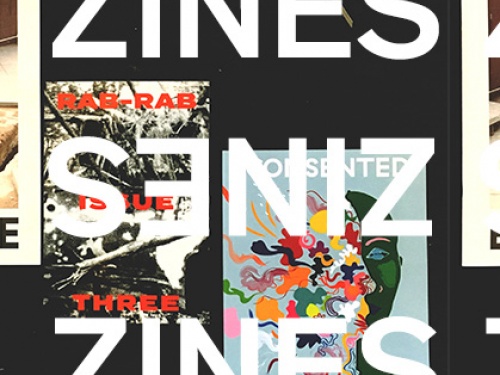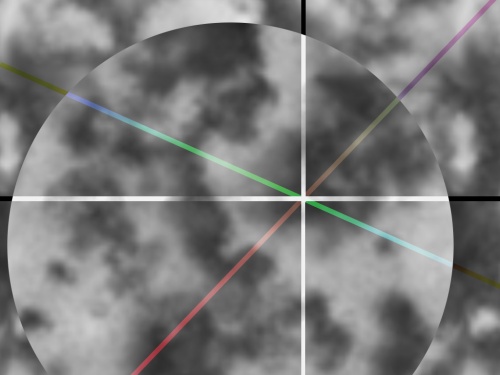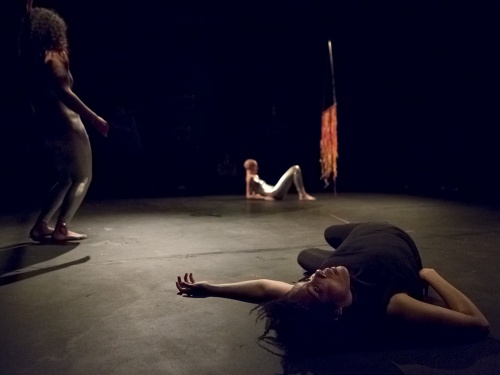Writing Grief: An Interview with Max Porter
To coincide with the launch of the new fiction section of the ICA Bookshop, David Faulds spoke to Max Porter, author of Grief is the Thing with Feathers (Faber and Faber, 2015). Described by Faber and Faber as "part novella, part polyphonic fable, part essay on grief", this moving exploration of loss was longlisted for the Guardian first book award and the Goldsmiths Prize.
How would you describe Grief is the Thing with Feathers?
Grief is the Thing with Feathers came about when I found myself suddenly compelled to write exactly the book I wanted to read. It is a multi-voice fable about a man whose wife dies, leaving him with two young sons. The family is visited by Crow, who acts as babysitter, counsellor, analyst, mischievous housemate and eventually friend. It is a short book which moves between prose, poetry, play script, fairytale and essay.
This choice of form was very indulgent. I was looking to turn myself on. It’s a way of writing that excites me. And, not being someone who can dedicate long hours of focussed concentration, great big smooth swathes of crafted prose were never an option. It was small blocks that could be tuned and tweaked and rearranged in snatches of time.
What was it about Ted Hughes’ Crow that made you want to use it at as a point of reference?
Crow (as Hughes’ character but also as the object of poetic obsession: the bird, the mythological trickster, the cultural icon) is the perfect character to invite into a discussion of trauma and recovery. He understands, and is able to dismantle and play with, the iconographic and symbolic baggage that he has been loaded with since man first found him threatening and intelligent. For a while the book was going to be an investigation of waiting, of expected returns - I considered using Telemachus from Homer. But Crow offered me an irresistible amount of play, and various signs and visitations convinced me it had to be him.
I am drawn to Hughes for many reasons: for the ecology, for the rigour, for the deep English darkness, for his work's curious fascination with other languages and his stunning stories and poems for children. He was a vast creative force. When he is good, he one of the great poets this language has ever known. When he is bad, he is fascinatingly, wilfully bad; like bad Picasso, it is all part of the splendid and terrifying depth of his investigations.
Who or what is Crow? Is he the same character that Hughes wrote about?
No, he is deliberately not Hughes’ Crow from the very second he first speaks. Admittedly a reader of Hughes will have a slightly different experience, possibly enhanced, because there are in-jokes in there, affectionate things. Yet, Crow is a subject liberated from that book, armed with hindsight, and made aware of how he has been used. He is a bit like Francis Bacon’s Pope, who is not Velazquez’s Pope Innocent, but somehow becomes Bacon’s own through repetition and obsession and re-purposing. Bacon’s Popes scream at the image of all Popes. So too my Crow has waded through Hughes and Haida and Sioux and thrash metal and Alan Titchmarsh and arrives screaming—laughing—at all of them.
Which other authors played a part shaping in Grief is the Thing with Feathers? Are there any other voices at work behind the scenes?
The poet Fiona Benson discusses the concept of the permission-giver as being more helpful than influence. So the permission-givers for me are always Emily Dickinson, James Joyce, Barry MacSweeney, Basil Bunting, David Jones, Anne Carson, Alice Oswald and so on.
Beyond Hughes, Dickinson is the other loud voice. Everything I have to say about ‘the Thing’, about love and poetry and responsibility and recovery, is summed up in the discreet vandalism of Dickinson's epigraph, which is my favourite poem, tweaked by Crow for his own purposes. Other voices also haunt the pages of the book: people like Bakhtin, my Grandmother, Zizek, Tarka the Otter, Ghostface, my old flatmate Martyn.
By its nature, grief is a difficult and exceptionally personal condition. How did you approach the subject not only as an author, but as a husband and a father? How much of yourself did you put into your characters?
I wanted to write truthfully about how much I love my children and my wife, and the fuel behind that is grief I have experienced, especially the loss of my Dad when I was young. The project only became interesting to me once I was touching on things that were prickly and sore and sad.
Yet, making things up also turned out to be a lot of fun. Often when I tried to load up a character with feelings of my own they would slightly resist it and the internal music of the thing would be disturbed. I suppose they are all me—all built around an effort to be honest with myself—to find ways of writing that communicate this honesty in its purest form. Sometimes that is squelchingly sentimental, sometimes it is vulgar, sometimes it is polite. I can now look back at this and claim it’s the most honest thing I’ve ever done, despite being largely made up.
How did your background—your training as an art historian, your bookselling work and your editorial work at Granta—shape your writing?
The first I am permanently grateful for. It’s an excellent training. It’s naturally multi-disciplinary. I’m grateful for many things, from visual analysis and old school things like connoisseurship about origins and styles, to the fact of it introducing me to so many isms I wouldn’t want to be ignorant of, principally feminism.
The second was a lovely way to earn my living for several years. Booksellers are a special tribe. It was an honour to sell books, read books, be immersed in books. As a publisher, I’m grateful on a daily basis for the insights that bookselling gave me into the way the trade works.
The third is more complex. It has nothing to do with the book inasmuch as I shut myself off, cleared my desk of all work manuscripts and didn’t think about publishing while I was writing. But I also have to accept that I love my job and work with some of the best writers in the world and if the lines between being an editor and being a writer get blurred as I go out and talk about this book, then so be it. My job didn’t shape my writing, but having the book out is certainly shaping how I do my job. I sincerely hope I’ve become a more sympathetic editor. You go batshit crazy before publication, I now realise, and I feel better able to help with that!
Which books would you recommend for the ICA Bookshop?
Citizen, by Claudia Rankine; The Vorrh, by Brian Catling; The Vegetarian, by Han Kang; The Black Apples of Gower, by Iain Sinclair; Terror, by Toby Martinez de las Rivas. ■
Grief is the Thing with Feathers is available online or in our bookshop on the Mall.
This article is posted in: Blog, Interviews, Store
Tagged with: Ted Hughes, Literature, Fiction, ICA Bookshop, David Faulds, Max Porter, Grief is the Thing with Feathers, Crow, Life Writing, Grief, Art, Francis Bacon








